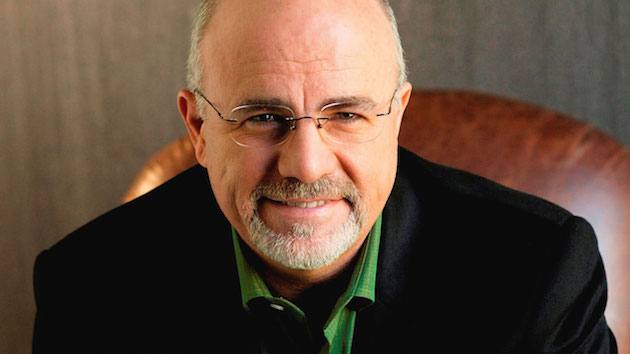Dave Says – Teachable moments are valuable at any age

Need some financial advice? Debt and income crisis? Pay off the house mortgage first? Check cashing? Taxes? Credit Cards? Check out what folks are asking Dave Ramsey.
Teachable moments are valuable at any age

Dear Dave,
A good friend of mine passed away recently. In his will, he left me a couple of items and some money, and I’d like to share the money with my son. He is 25, and a good kid, but he is still impulsive with his finances. Do you have any advice for handling this in a way that will do him the most good?
Frank
Dear Frank,
It’s tough enough losing a close friend without having to worry about a grown son with money issues. I’m sorry you’re going through all this.
To be honest, I don’t like the idea of just handing him money when you already know he’s impulsive. I learned a long time ago that handing money to someone who’s financially irresponsible is not a good idea. Lots of people think other folks would be fine, and all their problems would be solved, if they just had more money. That’s not generally the case. You need to ask yourself if giving this young man a bunch of cash would really, truly help him. More than likely, the answer is no.
You obviously love this kid, and you’ve got a generous heart. But under the circumstances, it might be a good idea to attach a few strings to any cash. Don’t make him jump through a bunch of hoops for no reason, though. I’m talking about teachable moment-type things that will help train and educate him to handle his finances in a more responsible and productive way.
There are lots of paths you could take. You might require that he start living on a written, monthly budget, that the two of you go over together for the first few months. Sitting down with a good financial coach—one with the heart of a teacher—is something you might consider throwing out there, as well.
In my mind, this approach is fair to everyone involved. It allows you to help him help himself, instead of just handing him something that may or may not be a blessing.
—Dave
READ: Dave Says – Responsibilities come first
Combine finances?
Dear Dave,
Is it okay to combine finances with someone and start working on a budget before you marry them? I just got engaged, and we’ve been talking about the idea of getting a head start on our finances together.
Autumn
Dear Autumn,
First, congratulations! I hope you two will have long and happy lives together. Now comes the hard part. But you asked for my opinion, so here goes.
No, it’s not a good idea to combine finances with anyone you’re not married to. Don’t get me wrong, I’m glad you two are thinking about your finances and your future—and I’d never wish anything bad for you—but all kinds of things can happen before you become husband and wife. What if you spend time paying off his debt, or vice versa, then the relationship doesn’t work out?
However, this doesn’t mean you can’t begin working together on budgets for the future, and planning and dreaming about the goals you have together. The thing to keep in mind is you’ll both need to be operating in full transparency mode to make it happen. He should know all about your income and debts, and you should know all about his. Along the way, you two need to have serious, regular discussions about saving, spending, and debt to ensure you’re completely on the same page with your finances before the big day.
There you go. My advice is both of you should pay only your own bills until after you’re married. And remember, once that happens there’s no yours and his anymore—it all becomes ours.
—Dave
Self-insure?
Dear Dave,
I’ve been researching long-term care policies. Can you reach a point financially where you can self-insure long-term care needs, and not buy a long-term care insurance policy?
Paul
Dear Paul,
It’s possible, mathematically speaking, if you have the resources available to pay for the care you’d receive in a nursing home or similar facility for about 20 years. Not many folks have that kind of money, though. I think it’s a large enough bill that it makes sense to transfer the risk to a long-term care insurance policy.
Keep in mind, too, if you’re married you have to think about your spouse, and make sure they have enough to live on comfortably at the same time. That’s a lot of money. And that’s why I advise virtually everyone to put good, long-term care coverage in place at age 59 or 60. It can mean the difference between living with dignity, or having to depend on the government!
—Dave








